It is the season of hyperbole. Conservative columnists are finding parallels for Dan Andrews’ pandemic policy in Mao’s Great Leap Forward; CNN anchors have seen precedents for Donald Trump’s speeches in the posturing of Mussolini. Best of all, the septuagenarian American cellar-dweller has accused his opponent of killing 200 million of his countrymen; a butcher’s bill which dwarfs the combined efforts of every despot in recorded history. The Donald is certainly a boorish, bouffant-haired narcissist, but is he really Hitler reincarnate? Dan is certainly a delusional, incompetent autocrat, but is he really Son of Stalin?
Unlike all the above, none of the sociopaths I’ve known have damaged lives outside their immediate circle, but one has run up such a tally of wickedness that I intend one day to make him the subject of a novel. I was persuaded to let this latter-day Mr Jingle sleep in my spare room for ‘a few days’ when he first arrived in Sydney. I introduced him to a friend who gave him a job and a bank manager who gave him an overdraft, and he was so companionable that I let him stay for several months, rent free. In the days after his departure I noticed that items of value had gone missing. I then got a call from my bank manager telling me X was not returning phone calls about outstanding loan repayments. Then a call from the friend who’d given him a job telling me he wanted to kill X. Two weeks earlier, it seemed, X had told him he had to fly back to the UK for a couple of weeks on a personal matter. As soon as he got there, however, X called my friend’s daughter, with whom, unbeknownst to my friend, X had been sleeping, and persuaded her to sell the car he’d left at the office and spend some of the proceeds on a one-way economy ticket to London. Excited by the prospect of romance and travel, the girl packed a bag and, as X had instructed, told her parents she was going to stay with a friend. X met her at Heathrow, checked into a hotel with her, relieved her of the rest of the car money, then waited until she succumbed to jet-lag before sneaking out and driving away. We subsequently learned that X had funded his own flight from Sydney by raiding the stash of the notorious drug dealer with whom he’d been living since moving out of my house, and to make sure the dealer couldn’t follow him, had told Sydney police about the stash, and gotten the dealer arrested. The trail went cold for two or three years. But recently I heard that far from being murdered or imprisoned, X has charmed his way into at least one more high-paying job and the confidences of at least one more trusting female. Apparently she also let him live rent free in her house and only got him out with an AVO.
I’m confident my novel will be published, illustrating, as it will, the evil that old white men can still get away with in the patriarchy. But before I start writing it I must finish the final draft of another novel inspired by another acquaintance. This one is about an English art critic who gets into all kinds of trouble in Australia after making the mistake of questioning the merit of some Aboriginal paintings. Even if I had not decided to name the main character Miles Hawtree, Speccie Australia readers would have no difficulty identifying him as a younger version of one of my stable-mates. He may also remind older readers of an erstwhile art critic for the Australian. But what very few know is that between those two modest profile jobs my friend Giles Auty, who died suddenly last week, almost landed a gig which might have made him a household name. Twenty-three years ago I was one of several British ex-pats featured in a documentary series called Pommies. I became good friends with the director, and one day he mentioned that Giles had also been one of the people he’d interviewed, but that he hadn’t made the cut. While he’d personally found all Giles’s observations about his adopted country insightful and funny, he told me, they were so politically incorrect – even by the standards of 1996 – that they would almost certainly have gotten the show pulled off air and might conceivably have gotten Channel 7’s offices firebombed. Way to go, Giles.
Beverley McArthur
Have you ever noticed where the moss grows on a tree? It’s on the shady side where the conditions are easier. It’s not harsh, there is limited sunlight. It is protected from the wind. And it grows lush. It covers the gnarly cracks with a thick, velvety, protective green. On the other side the conditions are crueller: the wind blows, the sun hits, it is a ruthless, unforgiving world where only the tough species survive. Delicate moss survives on the shady side. It has learnt life is much tougher in the full sun. Moss does not grow there.
Victorian Premier Daniel Andrews is political moss. Surrounded by a largely adoring and unquestioning media and a fan club of hash-tag sycophants – he survives uncontested. He is not exposed to the full-sun reality. His comfort zone is established – his tyranny goes unchallenged in the shade. The moss grows on a bed of fear. His hotel quarantine ‘Inquiry’ is hardly a torch to truth. Despite the oaths, it has provided only the dimmest of revelations into a forest of incompetence missing a canopy of accountability.
Fingers pointed in every direction. Waffle answers drifted laconically from one to the next. The exodus of Jenny Mikakos has more to do with the re-surfacing of a March press conference during which the use of security guards at hotel quarantine was openly discussed. The Inquiry merely joined the dots.
Yet Andrews’ moss immediately covers the cracks and grows thick. Curfews disappear. Schools open. Just. Like. That.
On the other side of the political tree, the species barely surviving the harshest of environments are businesses, individuals and a society gasping for relief. Here, as natural selection would have it, only the toughest are surviving.
On this side where the cracks are opening – are failing businesses, job losses in the hundreds of thousands, lives taken, dreams shattered. Fluttering from this tree like a peak-autumn flurry are billions of dollars lost, and billions of dollars more chasing them in a rescue mission doomed to leave the tree weaker.
On this side in the glaring light are the families who have lost loved ones; not only to the avoidable coronavirus that emanated from quarantine but to diseases left undetected or surgeries not enabled.
On this side are the shops for sale or lease; the children who have lost a year from their classrooms; those too scared to enter palliative care for fear that access restrictions will mean they will die alone. On this side are the families who could not say good-bye to loved ones; individuals, often women and children, torn apart by domestic violence. On this side are those wondering what their next job might be or from where it will emerge.
They are the ones who know how to adapt, how to cope, how to deal with the tough days with no protection other than their wits and a mountain range of hope. They have ideas. They are determined.
The moss would not survive on this side of the tree. Premier Andrews needs to step into the bright light and understand how unnecessarily hard he has made it for those unshielded by bureaucracy and the protection of the hashtag tribe. The moss looks lovely in the shade.But forced to the side of the sun, in the glare of reality, it does not survive.
Got something to add? Join the discussion and comment below.
Get 10 issues for just $10
Subscribe to The Spectator Australia today for the next 10 magazine issues, plus full online access, for just $10.
You might disagree with half of it, but you’ll enjoy reading all of it. Try your first month for free, then just $2 a week for the remainder of your first year.

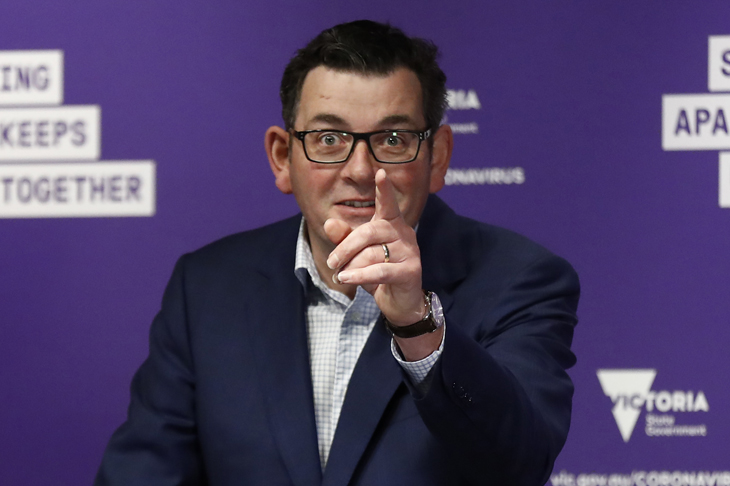
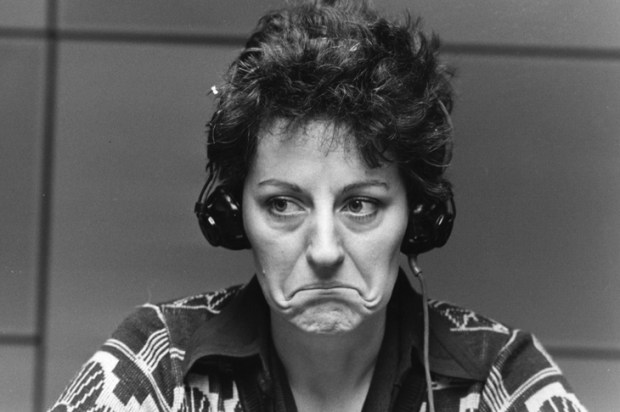
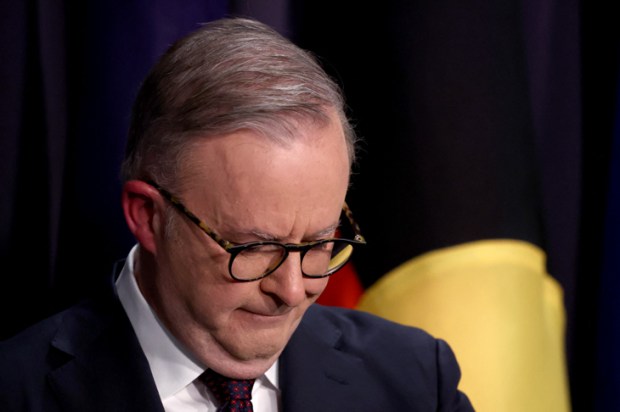
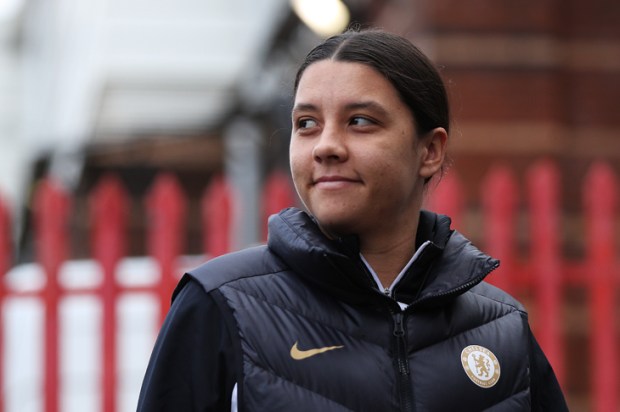
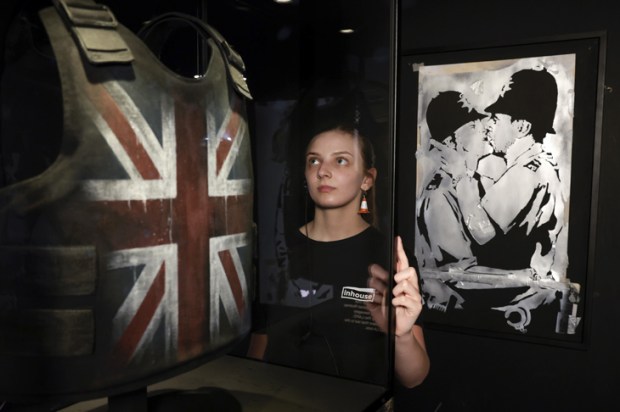
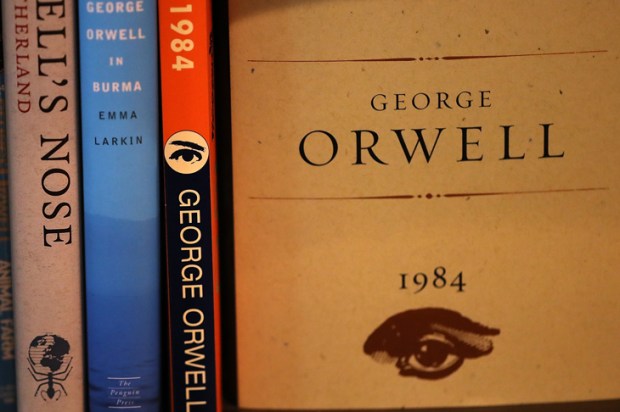
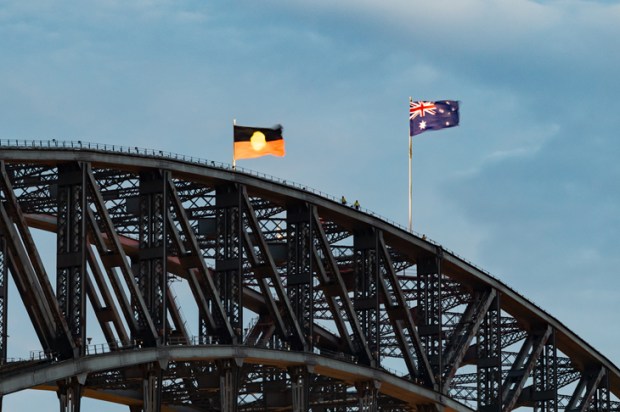






Comments
Don't miss out
Join the conversation with other Spectator Australia readers. Subscribe to leave a comment.
SUBSCRIBEAlready a subscriber? Log in